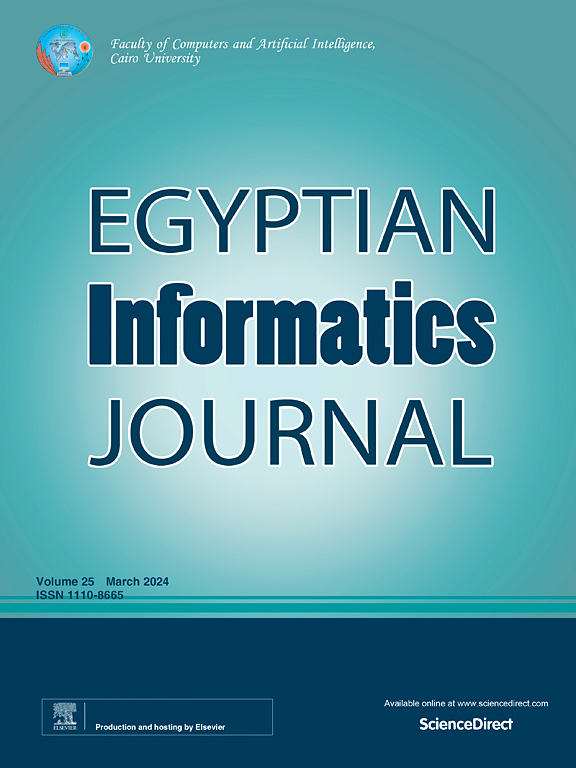The application and performance optimization of multi-controller-based load balancing algorithm in computer networks
IF 4.3
3区 计算机科学
Q1 COMPUTER SCIENCE, ARTIFICIAL INTELLIGENCE
引用次数: 0
Abstract
This paper addresses the critical issue of network congestion caused by the increase in network traffic in contemporary society. The computer networks serve as the foundation for information exchange and online services, and their efficiency is essential. Traditional load-balancing algorithms face challenges in handling dynamic workloads, leading to inefficient resource utilization and extended response time. To address this problem, a novel method called Genetic-Bird Swarm Optimization (GBSO) is introduced, focusing on multi-controller-based load balancing. This method involves problem modeling, analysis, and selection processes, including the selection of switches and target controllers within the network segment. The results showed that the throughput of the proposed GBSO method was about 3800, and the load index after load balancing was 0.6, indicating that the workload distribution was balanced. The accuracy of the proposed GBSO algorithm was 92.15 %, the precision was 89 %, the recall rate was 88 %, and the F1 score was 85 %, all of which were higher than the existing Naive Bayes algorithm. This study emphasizes the importance of load balancing in optimizing computer network performance. The new algorithm proposed in this article provides a reliable solution for uniform network traffic distribution, reducing the limitations of existing methods.
基于多控制器的负载均衡算法在计算机网络中的应用及性能优化
本文讨论了当今社会中由于网络流量的增加而引起的网络拥塞问题。计算机网络是信息交换和联机服务的基础,其效率至关重要。传统的负载平衡算法在处理动态工作负载时面临挑战,导致资源利用率低下和响应时间延长。为了解决这一问题,提出了一种基于多控制器的负载均衡算法——遗传鸟群优化(GBSO)。该方法涉及问题建模、分析和选择过程,包括选择网段内的交换机和目标控制器。结果表明,所提出的GBSO方法的吞吐量约为3800,负载均衡后的负载指数为0.6,表明负载分配均衡。所提出的GBSO算法准确率为92.15%,准确率为89%,召回率为88%,F1分数为85%,均高于现有的朴素贝叶斯算法。本研究强调了负载均衡在优化计算机网络性能中的重要性。本文提出的新算法为网络流量均匀分配提供了可靠的解决方案,降低了现有方法的局限性。
本文章由计算机程序翻译,如有差异,请以英文原文为准。
求助全文
约1分钟内获得全文
求助全文
来源期刊

Egyptian Informatics Journal
Decision Sciences-Management Science and Operations Research
CiteScore
11.10
自引率
1.90%
发文量
59
审稿时长
110 days
期刊介绍:
The Egyptian Informatics Journal is published by the Faculty of Computers and Artificial Intelligence, Cairo University. This Journal provides a forum for the state-of-the-art research and development in the fields of computing, including computer sciences, information technologies, information systems, operations research and decision support. Innovative and not-previously-published work in subjects covered by the Journal is encouraged to be submitted, whether from academic, research or commercial sources.
 求助内容:
求助内容: 应助结果提醒方式:
应助结果提醒方式:


